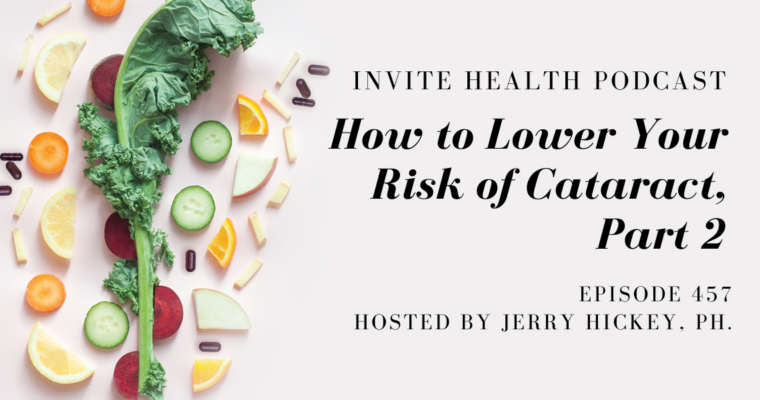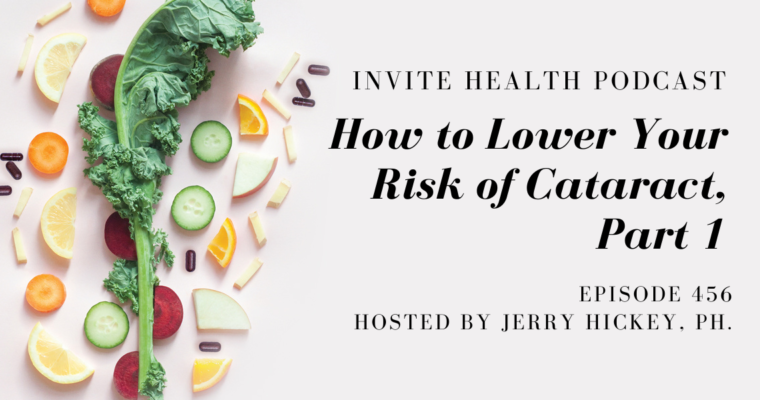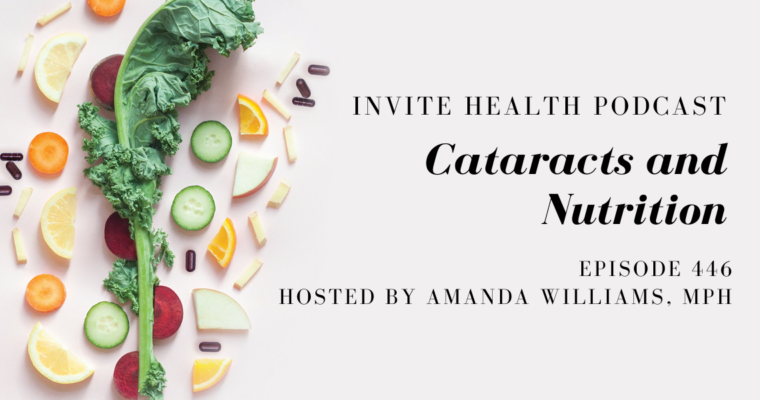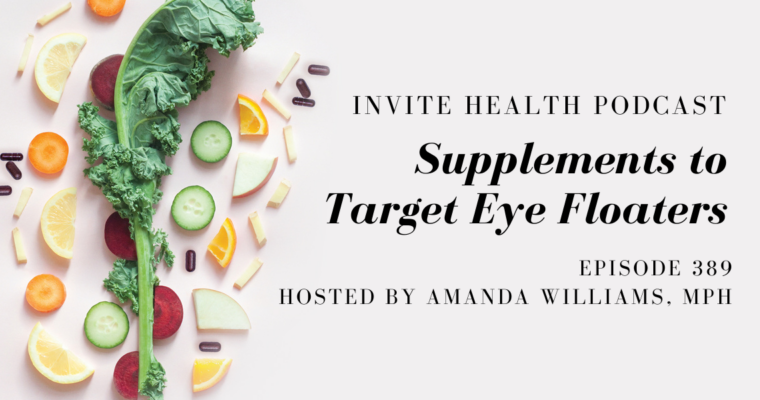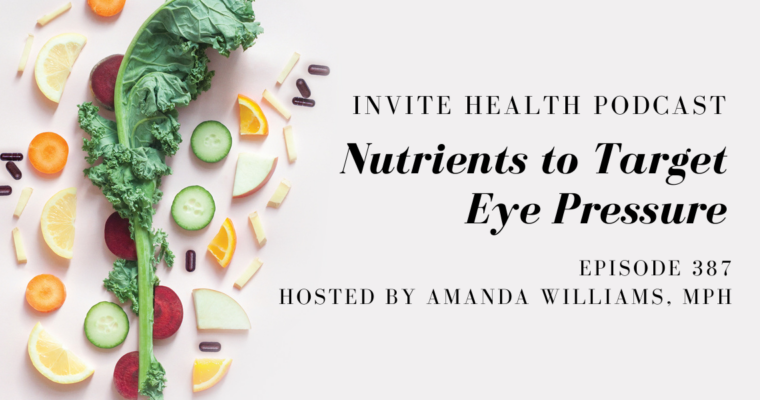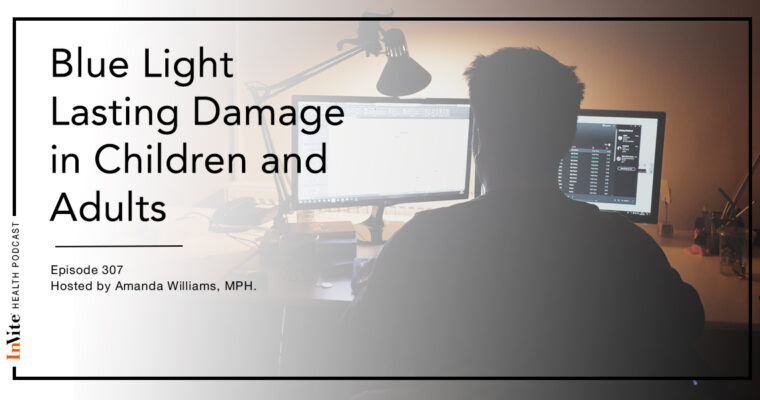How to Lower Your Risk of a Cataract, Part 2 – InVite Health Podcast, Episode 457
There is a variety of important nutrients that have been studied for their ability to help prevent the development of a cataract. This includes lutein, zeaxanthin, Vitamin C and zinc.
